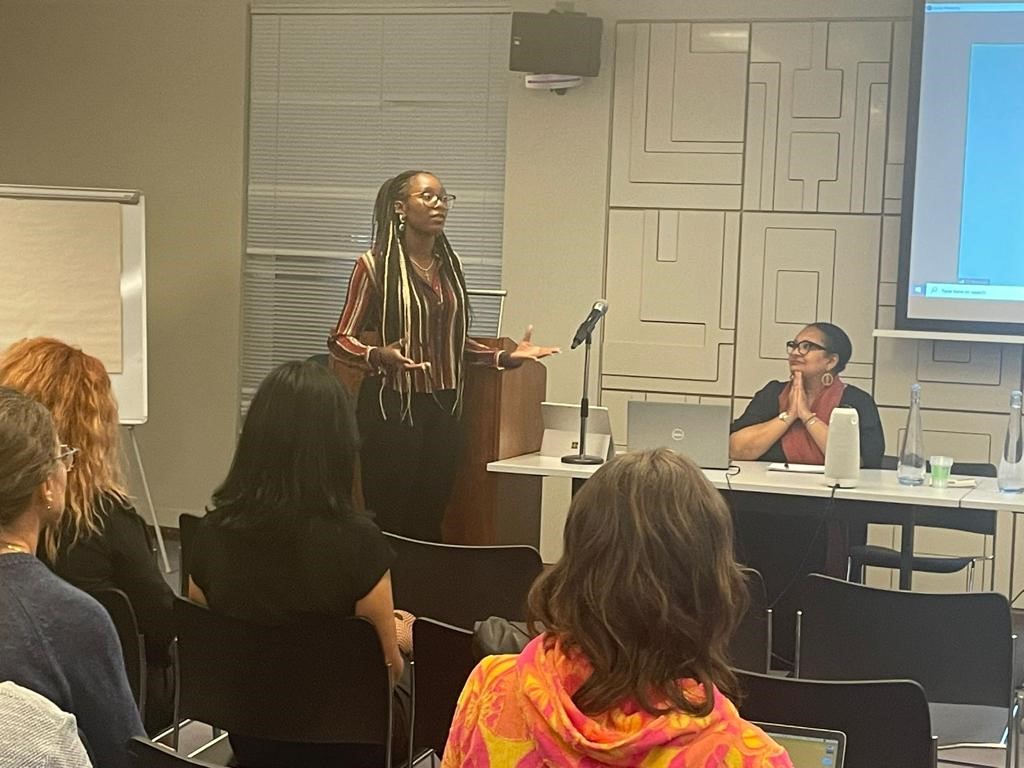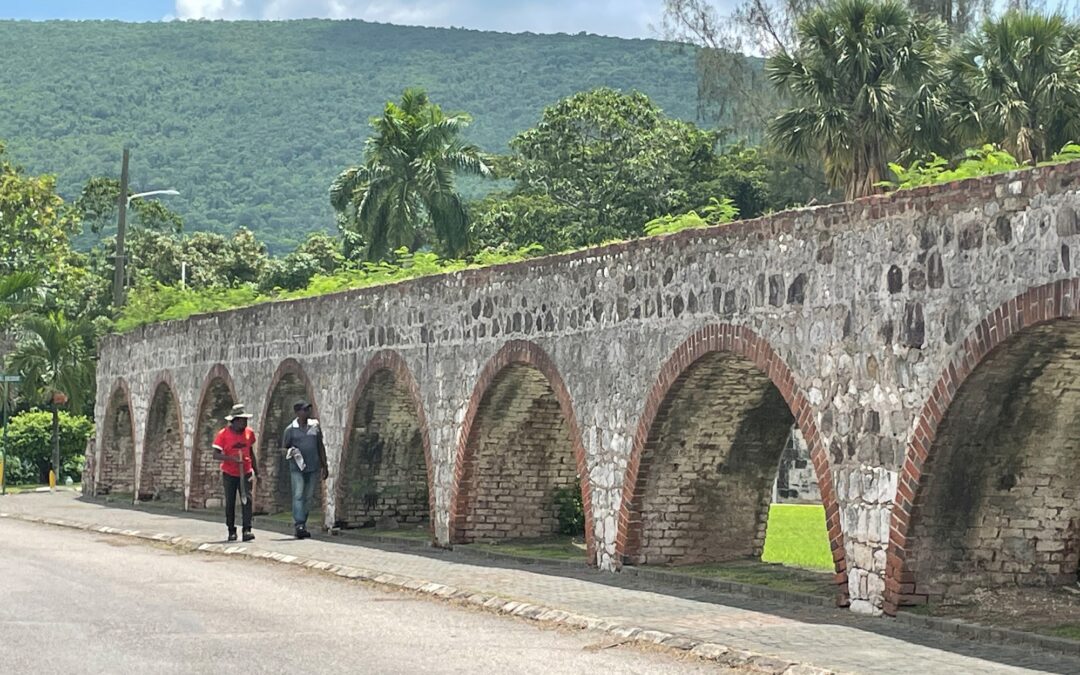This summer Destinie Reynolds completed a three-month internship with the IHR’s History & Policy research team. In this blog, Destinie shares her experience of working on the AHRC-funded oral history project “The Windrush Scandal in a Transnational and Commonwealth Context” at the IHR.
The arrival of the ship HMT Empire Windrush at Tilbury Dock in June 1948 has become one of the most evocative, poignant moments in Britain’s migration story. This, however, remains just one very small part of a much longer, more complex and significant history. A core component of Black British History is exploring the puzzles that remain unsolved, and unspoken of, in our society.
During my internship at the IHR, I learned about the importance of using oral history methods as a tool to amplify the voices of persons silenced, or whose experiences have been minimized. Working alongside my supervisors Dr Juanita Cox and Dr Eve Hayes de Kalaf, I listened to and documented sensational oral history interviews with community leaders, survivors of the scandal, activists and campaigners, Caribbean and British High Commissioners, senior politicians, state officials, and more. Through their stories I learned about the multilayered approaches activists and their allies have taken to bring justice to those affected by the Windrush scandal, not only in the United Kingdom but also across the Commonwealth Caribbean.

I first became interested in oral history after completing a course at the University of Manchester. This helped me explore the city’s hidden migration stories and sparked a personal interest in learning more about the Caribbean migrants who had fought to combat the racist narratives that overshadowed the revolutionary 1981 Moss Side uprisings. My time on this internship has given me a true appreciation of the horrific living standards Caribbean people and their families endured at that time.
I have had access to over 60 in-depth oral history interviews recorded as part of “The Windrush Scandal in a Transnational and Commonwealth Context”, which have highlighted the chilling, untold stories of survivors of the scandal and their efforts to fight against the overt racism of the British state. Alongside this, I have also learnt more about the legal restrictions imposed on immigration to the UK since the 1960s, which has widened my knowledge and understanding of the scandal. This landmark project not only unveils the true legacies and struggles of Windrush migrants but also promotes further scholarship on the lives of Black Britons, their families, communities, and the broader Caribbean.
What I enjoyed about the internship was having the opportunity to hear about each interviewee’s personal hopes for the future and how they will continue to fight for justice. It was fascinating to hear the different covert and overt forms of resistance mentioned in the interviews, which illustrated the immense battles taken to raise the issues of forced incarceration, citizenship deprivation, and deportations to the national stage. The internship gave me a greater appreciation of the field of historical research and I especially enjoyed spending time with different members of staff who helped me think about the ways I could push forward my own work by unlocking various methodologies, archival materials, and digital resources. I have made invaluable connections with my supervisors and with staff who gave me a warm welcome and an introduction to the IHR and the work they do.
This internship was an amazing opportunity to expand my historical knowledge, think about my career choices, and help my prospects in the field of historical research and oral history. This has not only enhanced my skills but has also developed my critical thinking and problem-solving abilities. I will ensure that I use these resources and oral history archives in my own independent research project this year.

Banner image: University of West Indies Mona Campus in Jamaica. Photo credit: Eve Hayes de Kalaf
This blog piece was originally posted on The Windrush Scandal in a Transnational and Commonwealth Context website and can be found here.

